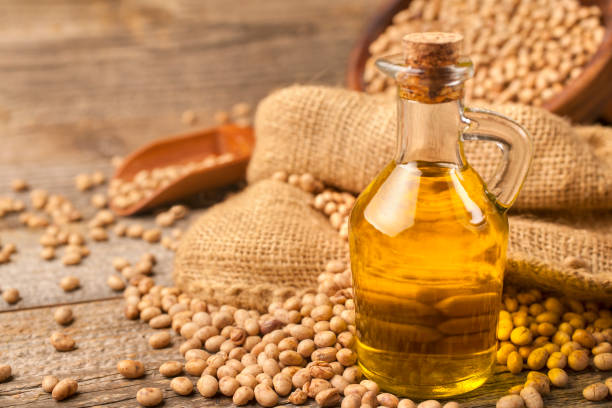US tariffs and their impact on the European vegetable oil market

The US vegetable oil market is at a pivotal juncture, with President-elect Donald Trump’s proposed blanket import tariffs posing potential disruption to global supply chains. If enacted, these tariffs would target essential imports of vegetable oil feedstocks, such as used cooking oil and canola oil. While the primary impact would be felt in the US, the reverberations could be significant for the European vegetable oil market, particularly in the context of soybean oil (SBO), a crucial feedstock for biodiesel and food production.
Potential shifts for European markets
For Europe, which relies heavily on imports to meet its vegetable oil needs, changes in US tariff policy could trigger cascading effects. The EU is already contending with supply pressures due to geopolitical factors, notably the war in Ukraine, which has disrupted the global sunflower oil trade. The war has caused a sharp reduction in Ukrainian exports, leading to heightened prices and supply uncertainty. If US tariffs on vegetable oils push global prices higher, Europe could face even greater strain in securing its supply of vegetable oils like sunflower and soybean oil at competitive prices.
The price dynamics for SBO specifically are expected to tighten, especially as the US and Argentina ramp up their exports of SBO, seeing it as undervalued relative to palm oil. S&P Global analyst, Wes Petkau, emphasized that this trend could continue unless the price of SBO strengthens further, making it less competitive. If US supply tightens in 2025, SBO prices may need to rise to meet the demand for both biodiesel and non-biofuel uses in the domestic market.
However, he also warned that a potential tariff war would be bearish for US soybeans, especially if exports to China decrease. This could inadvertently benefit US domestic crushers by providing a steady supply of soybeans without the need for oil price increases to maintain crush margins. He also highlighted that for the US, canola and palm oil imports are especially significant, as 70% of Canada’s canola oil is exported to the US, and global palm oil largely comes from Malaysia and Indonesia.
Implications for EU biodiesel and food industries & retaliation risks
A shift in the global vegetable oil landscape driven by US tariffs could drive prices higher, impacting both the EU biodiesel sector and food industries that use vegetable oils as key ingredients. The EU biodiesel sector, which includes a significant portion of renewable energy targets, could see increased production costs. Higher vegetable oil prices could reduce profit margins for biodiesel producers, pushing them to seek more expensive feedstocks or pass costs onto consumers. This would add pressure to an already strained market, where energy costs are a growing concern.
The potential for retaliatory tariffs represents another layer of complexity. Key vegetable oil-producing countries, including exporters such as Argentina, Brazil, and Indonesia, might respond with tariffs of their own on US agricultural exports if the US imposes duties on their vegetable oil products. For the EU, any disruption in the global flow of vegetable oils could further complicate sourcing strategies and price stability.
Indonesia, the world’s largest palm oil exporter, has already been grappling with reduced shipments due to increased domestic biodiesel production. This dynamic could be exacerbated by potential retaliatory measures from the US or other nations, leading to tightened global palm oil availability and higher prices. Similarly, the EU’s access to canola oil, primarily imported from Canada, could face hurdles if that country responds with trade barriers of its own.
Global supply pressures and rising prices
The global vegetable oil market is already experiencing strain. According to USDA data, the next year is projected to see a 13% decline in global rapeseed oil supplies and a 24% drop in sunflower seed oil stocks. These shortages come amid tightened export flows from key producing regions and the reduced palm oil shipments from Indonesia, driven by increased biodiesel demands. In this context, a shift in US import policy could add more pressure to European markets, pushing prices even higher.
While President-elect Trump’s proposed blanket import tariffs on vegetable oils may promote US self-reliance and incentivize domestic crushing capacity, the broader impact could be felt in Europe through higher prices, reduced supply availability, and potential retaliatory trade measures. The EU, already navigating supply challenges due to the conflict in Ukraine and global market tightening, would face additional strain if these tariffs are implemented. Further complicating matters, rising SBO prices and a potential tariff war could have mixed consequences for US soybean crushers, depending on the direction of trade flows.
Read also
Uncertainties As The New Reality: How Agri Business Can Generate Money In 2026
Ukrainian rapeseed in 2025/26: From exports to processing-driven market
Jordan cancels wheat tender and announces new one for 120 thsd tons
Israel may restrict Black Sea wheat imports amid new trade deal with the US
Ukraine сompletes 2025 sugar production season
Write to us
Our manager will contact you soon



